Is Spain full of foreigners?
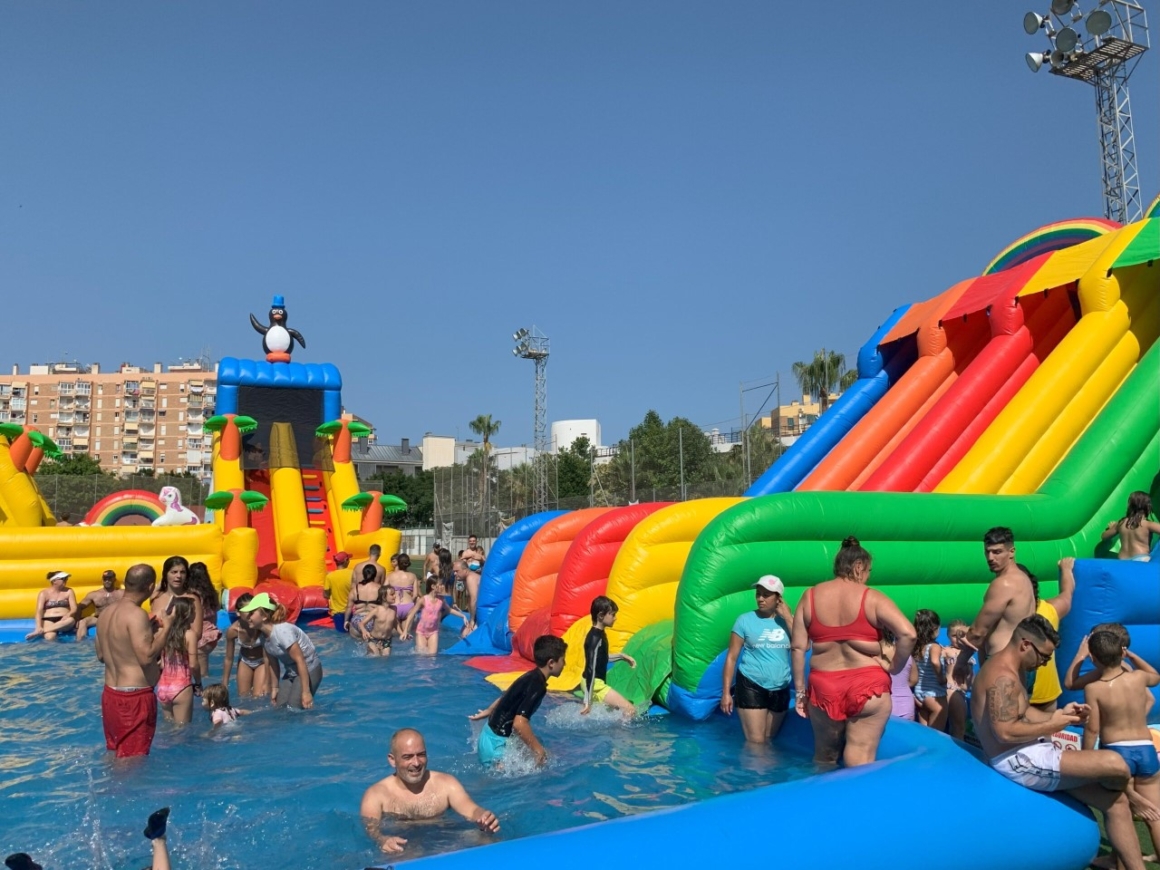
Is Spain full of foreigners? Have you ever heard or wondered about that? I’ll give you my two cents and some statistical data on this important matter.
First, let me tell why I’m writing this: recently I was with Kiddo at one of the events of the Feria de Benalmádena 2023, and while he splashed and had the time of his life up and down an inflatable waterpark built on a soccer field (crazy, right?), I was sitting under a shadow, browsing Facebook to pass the time. Then I came across a post of a lady that is soon moving to Spain, who mentioned that her real state agent had recommended against the coastal cities because they had lost their authenticity, as they are full of foreigners.
So much food for thought there, that I’ll have to subdivide the ideas. Are there really so many foreigners around? Are foreigners de-Spanishing Spain – is that even possible? Is the real state agent telling a fact or being xenophobic – while at the same time helping a foreigner move to Spain? Let’s start unravelling this.
People that choose Spain have a mindset that matches the Spanish traditional lifestyle
Kiddo and I are foreigners, in that very moment enjoying a Spanish traditional event – the Feria. The lady on Facebook, moving to Spain, is a foreigner looking for a place with Spanish flavor. I feel that, much like me and the lady moving soon, other foreigners look forward to be part of Spain, to integrate, rather than to change the Spanish way of life.
I believe that when people move abroad by choice, they pick a place that offer things they like and that matches their own personality; I also think that even when they move for reasons other than choice, they adapt to the place.
I saw it in my years working in a Consulate of Brazil in the USA – the Brazilians I dealt with there seemed to me more Americans than Brazilians, specially in the way they speak – Brazilians are soft spoken, Americans are more straight to the point. I noticed it in the Brazilians I met in Estonia as well – the longer they stayed, the more Estonian they became, in their ways, choices and behaviors. Well, I see it in me! I haven’t worn outside shoes at home since my days in Tallinn.
People that move to the famous touristic cities come because they enjoy and identify with the place; in that sense, they add to the local culture. They’ll eat a paella, be part of a local celebration, live the Spanish life, even if they sometimes want to eat at a restaurant that serves food from their country. We move and adapt. And we are not that many, after all – according to data:
Nowhere in Spain there are more foreigners than Spaniards
But in Torrevieja it is close. And my dear Benalmádena is the 5th city with more foreigners in Spain!! According to the National Statistics Institute (INE), Benalmadena has a staggering 26% of foreigners in the resident population; this in turn means 74% of Benalmádena’s population is Spanish. More Spanish people than I though (:P) to be honest.
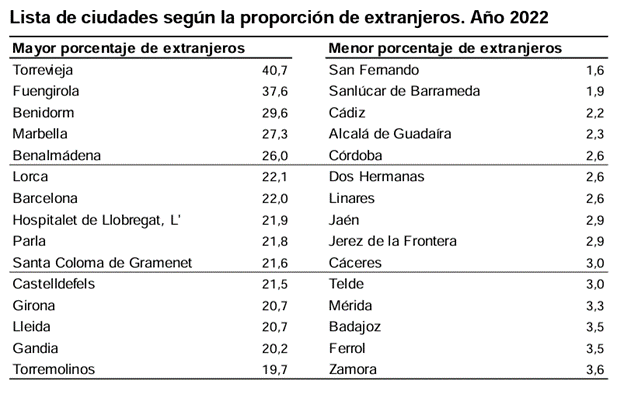
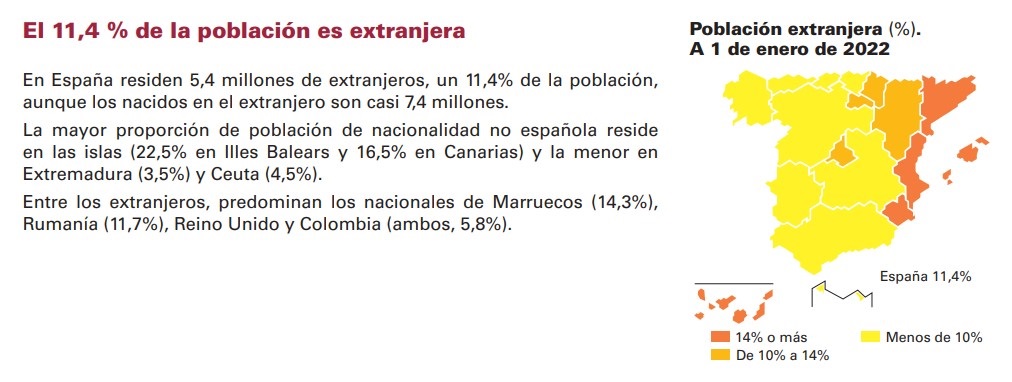
About 11.4% of residents in Spain are foreigners, and the proportion is more than the double of that in my city, Benalmádena. Despite that, try speaking English around Benalmadena, and you are met with question-mark-eyes. Not prejudice, not xenophobia, people kindly and apologetically inform that they don’t understand.
But speak in Spanish and soon you have a new friend. And everybody smiles, and says good morning, everywhere. My way to school with Kiddo is full of Buenos días and smiles. The other day I saw a (Spanish) neighbor help his baby grandchild enjoy a pool for the first time; I smiled and now we are friends – he gives me updates on the baby and his other grandkids anytime we meet buying bread. It is not like that anywhere I lived before, so I do feel Benalmadena is very much filled with true Spanish flavor – and by that I mean the friendliness, the easy going, happy way to be alive.
What is the traditional Spanish flavor?
I think it is the imaginary picture of white-washed villas with flower pots on the walls, the pueblos, the bucolic slow paced life; someone playing a guitar in front of a house, friends sharing tapas on the porch, green olive field up the mountains, till the blue sky. This still exists, but the point is that… the imaginary traditional Spanish life is rural life. Rural life can be wonderful, but also come with its own problems – old houses, difficult maintenance, lack of water, electricity, internet, long distances, to name a few.
The reason why this sort of traditional Spain is disappearing is not because foreigners are moving in; it is because either the places grow and become more urbanized, or they simply disappear. Their youth go out to study and work in bigger cities and don’t come back; their elders eventually die, and so do the small pueblos.
Idealista has a small list of villages that are paying for people to live there; Spain has a public initiative to repopulate rural areas (in Spanish only) called Volver al pueblo (going back to the village). By the way, they do accept foreigners, but they don’t give visas.
The main reason people don’t come back to the traditional pueblos after they go away to study is that there is no job offer in these places other than in construction or agriculture. When such pueblos happen to be close to a big city or coastal area, they end up growing, losing some of their flair (because of the growth) and becoming dormitory cities for people that actually find jobs in the nearby attractive places. Much of these jobs, ironically, are related to tourism.
Tourism is a big part of Spain
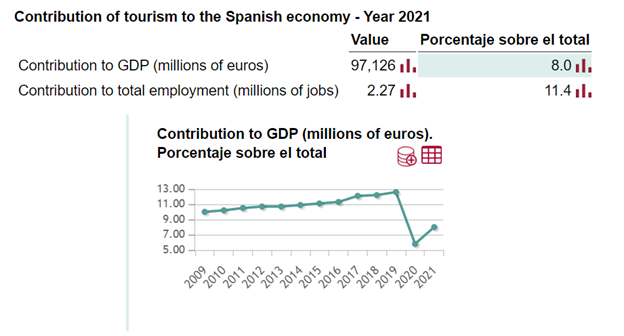
Tourism figures includes both internal and foreign tourism and together they constitute a major source of income to Spain. No wonder Spain is so accomplished at promoting itself. The Costas themselves (such as Costa del Sol, Costa Blanca, Costa Cálida and so many more) were named by government related tourism institutions in order to market tourism in Spain abroad.
And it works. During summertime, the number of foreigners grow tremendously in the Costas and in other touristic cities. I think much of the perception that Spain is full of foreigners (and my own impression that Benalmadena had more than just 26% of foreigner residents) comes from summer time – meaning the perception that Spain is full of foreigners has more to do with tourism than with actual residency.
And tourism, in turn, keep many a Spanish tradition alive. The Ferias (a week or so during the year when each city concentrates a lot of special attractions, such as the inflatable waterpark I mentioned before, lots of music presentations, food competitions, dance spectacles and so on) are a part of traditional Spanish life that probably needs tourists to keep happening. A dying pueblo could not afford that.
Moreover, the influx of foreign money plays a role in making a beautiful place lively. Bars, restaurants, and discos are concentrated in touristic areas for a good reason – tourists are frequent customers. Despite that, if you live in a tourist area, you may know what I mean when I say that locals don’t like tourists so much. While most tourists are normal people, the misbehaving ones stand out. And so, right or not, tourists are blamed for anything that is misplaced– and a bit of xenophobia is born.
Xenophobia
Blaming the foreigners for anything that is wrong is in no way a Spanish trace, but it has a role in this discussion. I think over time, the amount of tourists crowding beaches, streets and parking lots may have many a Spaniard longing for the times when Spain was all for themselves – money was lower for sure; so was employment, but people are faster pointing wrongs than rights…
I have not experienced any sort of xenophobia in my days in Spain (or anywhere else, to be fair), but I do think of it when I read stuff like “Spain is full of foreigners” or “Spain is losing it’s Spanish flavor”, as it is a direct accusation that we (the foreigners) are somehow damaging the country. But I think these comments are actually more targeted at tourists than at residents and that the amount of good foreigners bring overall makes more good than bad and actually help keeping Spain’s flavor.
The feeling that Spain is full of foreigners make much more sense during summer, when Benalmadena and other desirable locations are really packed of people – it is not a year long thing. I don’t think during that time there is less of a ‘Spanish flavor’ but certainly there are less spots to park, and so people get angry and blame the foreigners…
The xenophobia thing has also something to do with Africans refugees that cross the Mediterranean to live in Europe. Spain’s main foreign nationality is Moroccan (not British!), many of which hold refugee status and are, therefore, enjoying state benefits supported by the taxes paid by the collectivity; you can see how this could cause some animosity among Spaniards that are indirectly supporting people from other countries.
But in my personal life, I don’t see any of it coming through. People know I’m a foreigner the moment I say Hola (Some even ask if I’m from Brazil; I see my accent is thick) and that in no way affect my relationships with local people. I feel welcomed.
Conclusion
In my opinion, even though there are lots of foreigners around, the foreign residents integrate more than destroy the Spanish culture. The traditional (rural) lifestyle may be fading due to urbanization and capitalism – people need to work! – not because of foreigners moving in. Paradoxically, foreigners – residents and tourists – can actually have a role at keeping traditions alive, as it takes money to make a city-sized celebration the way the pueblos did in the past; this can only happen because such events attract people, from abroad or not.
If there is some xenophobia transpiring through real state agents’ comments, rest assured that there is a bigger number of people who are grateful for foreigners enjoying Spain and bringing in much needed funds.
If you want to move to Spain and live in a vibrant place, don’t mind the fact that so many neighbors are foreigners. Some 10% to 40% may be, but they are Spanish at heart. Don’t worry about that, enjoy. And let’s take the kids to the Feria and to that crazy inflatable on the soccer field, because that’s the Spanish thing to do!
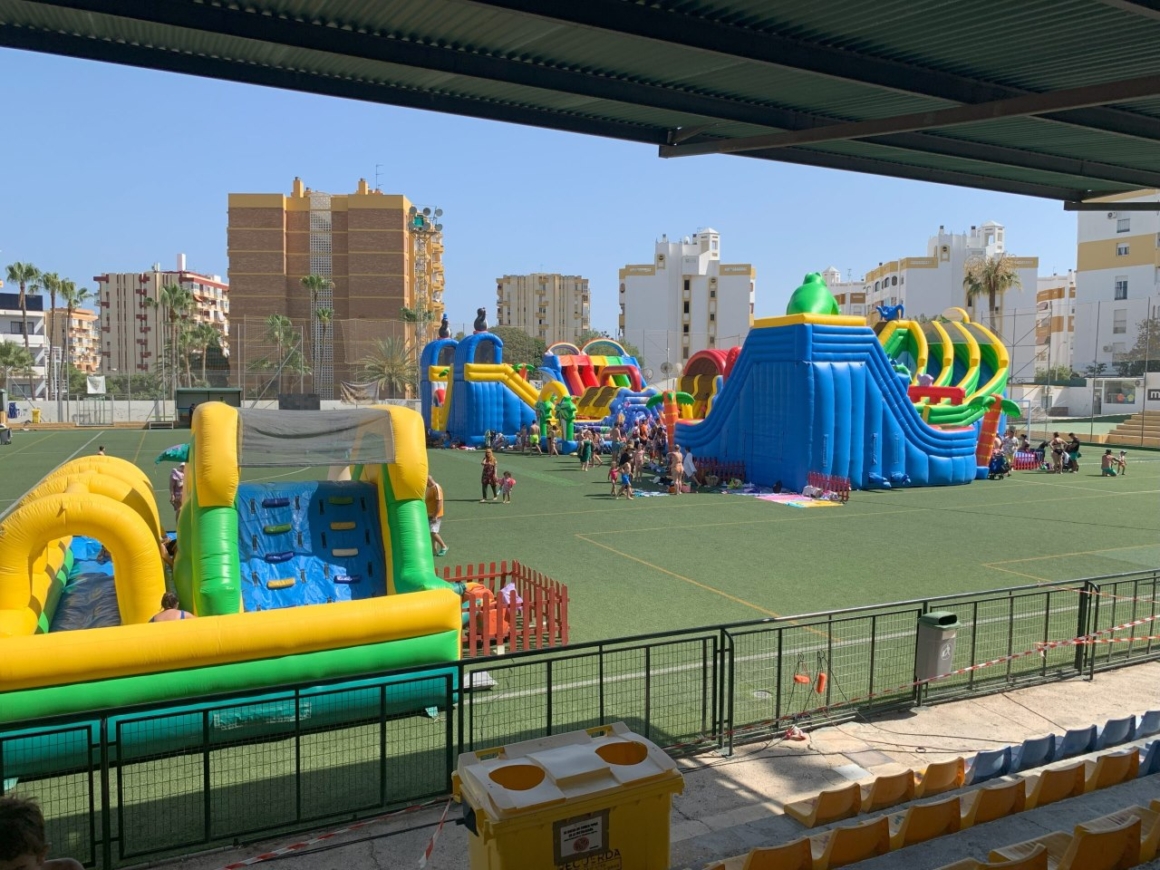

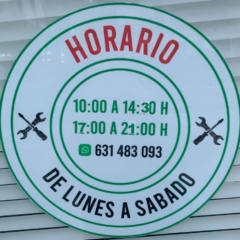
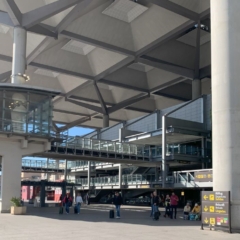

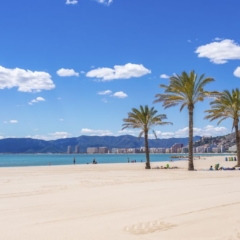
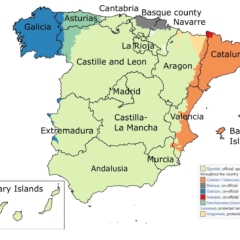



You’re welcome. Have you ever been to the eastern coasta del sol, Nerja, torrox, Torre Del Mar? We often go there, Torre Del Mar is much less developed compared to places like torremolinos.
I’ve not been to the eastern side yet, but it’s in my bucket list! From what I see on-line it seems beautiful.
Great article and some very interesting points here. I have been to Spain at all times of the year and I agree most of the huge volumes of tourists are concentrated in the summer, especially on the coastas. I was not aware that there are more Africans in Spain rather than British, my experience in the coastas was that most of the foreigners were either British or Irish, but maybe that was just those parts of the coastas. And yes it is true there are people that live in Spain for years that don’t speak a word of Spanish but that is probably the same in any country, I have met those types of people described in the comments.
Thank you for your comment, Josh!
Great article. Love the stats you shared. Agree with all your points. Being the ‘lady’ with the realtor who made that comment about foreigners, the irony of it all is that he is American originally and he helps foreigners find properties here. So..
With that said, his negative stance on foreigners living in spain was mainly targeted at foreigners, he claimed, moved here and had no interest in learning the language or immersing in the culture. I understand that as well. I personally think having a community of expats when moving to a new country can be great, as you have common ground with someone that has lived your experience of relocating to a different country. And there’s a lot of community that occurs in that shared experience. In the end, it’s all about balance i think, and making room for all the world..
Exactly!